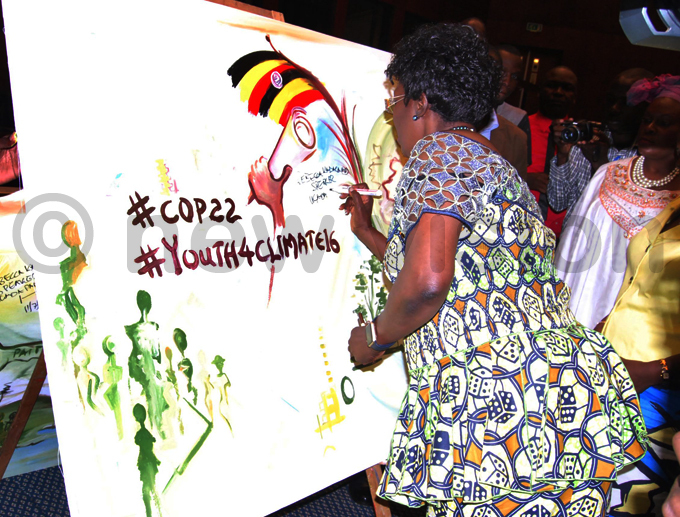Uganda's water reserves reduce by 20%
Uganda is the leading consumer of charcoal and biomass in the region
If you thought that ‘wasting' that extra cup of water to wash your face when you could have used one was insignificant, think twice. Water reserves in the country have decreased by 20% and if no major intervention is instituted to contain the problem, it could get out of hand.
Speaking at the inaugural national youth forum on climate change at the Kampala Serena Hotel yesterday, state minister for water and environment Mary Goretti Kitutu said their almanac assessments indicated that water reserves in the country shrunk by over 20% in the past 10 years.
The "unprecedented" cutting down of forest cover and wetland destruction were some of the reasons given for this worrying tiding, along with man's exponential growth.
"Uganda is the leading consumer of charcoal and biomass in the region (East and Southern Africa). Every year, we lose hectares and hectares of forest cover. Now, if you know the science, we get tropical and temperate rains from this forest cover through ‘forest breezes'", the minister said.
A new study by the ministry, which was funded by the United Nations Food and Agriculture Organisation, said Uganda lost 200,000 hectares of forest cover every year.
Edwin Muhumuza, the Youth Go Green initiative team leader, said the "rate" at which the country was losing its wetland cover was "unacceptable". (The initiative champions sustainable use of the environment).
"Every day, another wetland has been destroyed. But it is these wetlands that hold the water and act as a natural sieve to purify it," he said.
The consequence? The country is experiencing longer and longer droughts than it used to, which have adversely impacted the water reserves.

This affects food security, the quality of our soils, livestock incidences and the human population, he said.
Rosa Malango, the United Nations Resident Coordinator to Uganda, said the country needed to prioritize activities that will cause "sustainable environment use" and protect the planet.
She reiterated sustainable development goal 13 that calls for urgent action to combat climate change and its impacts.
"Our seasons have changed. Every day, we witness new challenges of prolonged drought and new diseases and this calls for immediate attention to reverse this dilemma and to use the resource (water) economically," she said.
Muhumuza said the youth (under Go Green) have committed to plant 10 million trees every five years along major highways and called on "everyone to at least plant a tree each".
Pius Bigirimana, the permanent secretary at the gender ministry, said government had recommended sh863b for environmentally friendly (green jobs) for the youth in the next nine years, starting with the 2017/2018 financial year.
The young people will be assisted to engage in activities and businesses that protect the environment like "recycling of waste" and tree planting and conservation.
Chebet Maikut, the commissioner for climate change at the water ministry, said they planned to present the Paris Agreement 2015, which contains "tangible resolutions" to address climate change, to Parliament.
Speaker of Parliament Rebecca Kadaga presided over the meeting, which, in part, prepared for the United Nations Framework Convention on Climate Change which will be held in Marrakesh, Morocco in November this year. Ends